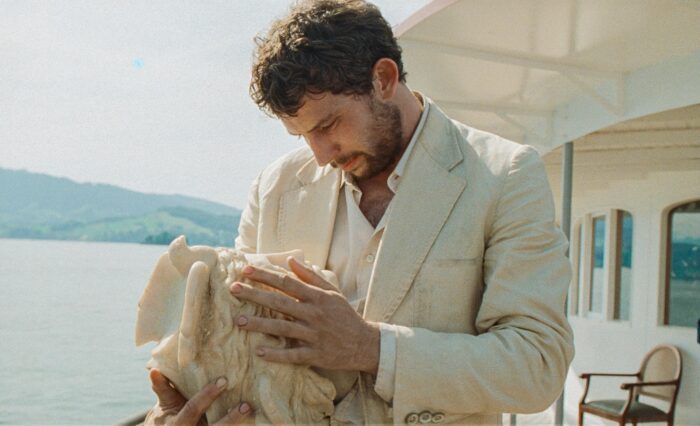The Englishman Arthur has the ability to find ancient tombs buried in the earth. The memory of his lost spouse brings him back to the Italian countryside to visit her family. Soon, he falls for his mother-in-law’s singing student and gets involved with a group of familiar grave robbers. The group plunder statues and vases from 4th-century Etruscan tombs for black market buyers, and eventually the priceless artifacts end up appraised by a yacht full of international museum curators.
Rohrwacher subtly draws a parallel between the grave robbers and the oil refinery next to the cemetery. In the name of industry, ancient riches and the soul of the earth are extracted for capitalist purposes, but no one calls it grave robbing. The ecological theme is present without finger-pointing.
Often, Rohrwacher’s protagonists serve as travel guides to witnessing life’s small yet significant wonders – as in La chimera. They are poets wandering between two worlds: old traditions and modern ways, spirituality and secularism.
Stylistically, Rohrwacher herself wanders between modern cinema and the Italian masters. Deep undercurrents include the rural landscapes of Olmi and Taviani, but the most prominent influences are Fellini’s carnivalism and Pasolini’s folklore elements, a protagonist reminiscent of the beggar from Accattone, and the comedic stylisation of The Hawks and the Sparrows.
Otto Kylmälä
